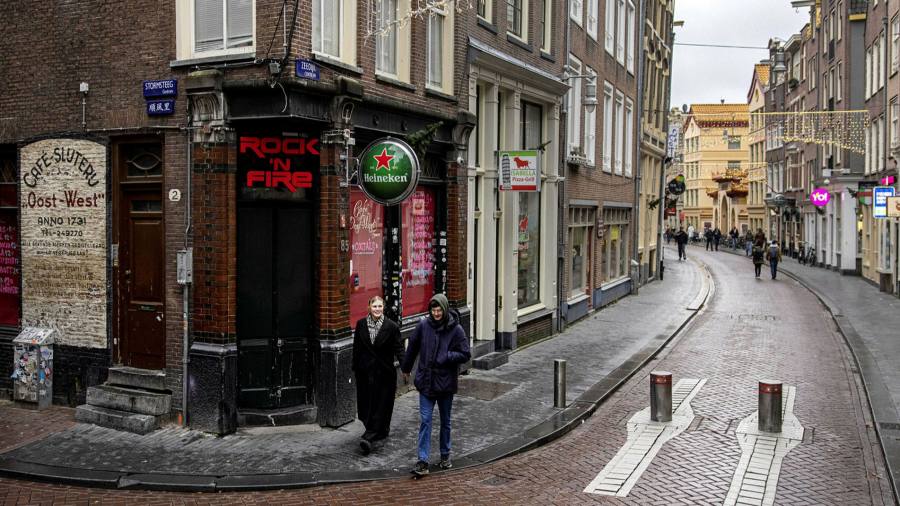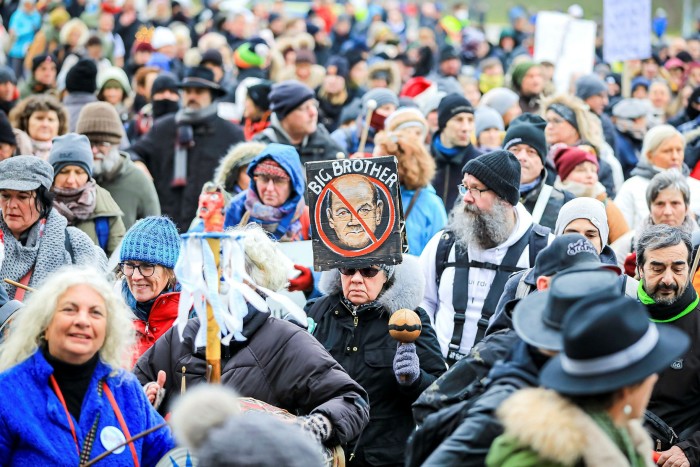
European countries impose travel curbs to slow Omicron’s spread
European countries are tightening restrictions to reduce the spread of the Omicron coronavirus variant after the Netherlands reimposed a strict nationwide lockdown on Saturday.
Germany set new entry requirements for people from the UK and several other European countries, with Berlin on Sunday designating the UK a “virus variant region”, triggering the country’s toughest travel regulations.
As of Monday, only German citizens, residents and transit passengers will be allowed to enter Germany from the UK. Those entering the country will be required to quarantine for 14 days, regardless of their vaccination status.
New travel restrictions were also introduced for arrivals from Denmark, France and Norway. New arrivals must quarantine for at least five days if they are not vaccinated or recovered from the virus.
Omicron is far more infectious than previous strains and can be caught by those who are double vaccinated.
Covid-19 infections have also spiked in America over the past week: both New York State and the District of Columbia have reported successive days of record cases. On Sunday President Joe Biden’s chief medical adviser warned of mounting “stress” on the US hospital system as new cases start “raging” through America and the world.
“Our hospitals, if things look like they’re looking now, in the next week or two, are going to be very stressed with people,” Anthony Fauci, the director of the National Institute for Allergies and Infectious Diseases, told ABC on Sunday.
Austria, which is just emerging from a national lockdown, said it would allow entry only to vaccinated travellers from Monday. Those who had not received a booster shot would be required to take a test in order to enter the country.
The Dutch government has closed all bars, non-essential shops, hospitality venues, cinemas and gyms until at least January 14. Professional sports events will take place without crowds and households can invite a maximum of four guests during the Christmas period, to be reduced to two after the holidays.
While no country has yet gone as far as the Netherlands, all are under pressure from scientists to act. Ireland is introducing an 8pm curfew for pubs and restaurants from Monday after the government rowed back from recommendations from health experts to order hospitality venues to shut at 5pm.
Public health officials warned of as many as 20,000 infections per day and, in the worst-case scenario, up to 2,000 people in hospital and 400 requiring critical care.
“The level of social contact over the next three weeks is key,” Philip Nolan, who heads epidemiological modelling for the scientific group advising the government, wrote on Twitter on Saturday. “The difference between a 10 per cent reduction in effective social contact and what we had in Christmas 2020 could double the number of infections.”
Italy’s health ministry this weekend told regions to strengthen planning measures to manage the current phase of the epidemic and a potential surge in hospitalisations.
Campania, the region that contains Naples and the Amalfi coast, banned indoor gatherings including children’s parties.
UK health minister Sajid Javid said he could give no guarantees that he would not order a pre-Christmas lockdown.

Spain and Portugal, where vaccination levels are among the highest in Europe, warned that they might have to tighten restrictions as the Omicron variant spreads.
Pedro Sánchez, the Spanish prime minister, has called an extraordinary online meeting of regional government heads on Wednesday to assess the potential introduction of more restrictive measures.
In a televised address on Sunday, he said the rapid spread of Covid-19 infections posed “a real risk”, but noted that, despite higher daily infection rates, the number of Covid-19 patients being hospitalised was lower than a year ago, before vaccination began.
Belgium will consider possible new measures on Wednesday.
France has banned tourist and business travel from the UK from Saturday with exceptions for French nationals and residents and those with essential reasons.
There were protests in several countries. More than 25,000 people demonstrated across France on Saturday in more than 100 protests against vaccine requirements and other restrictions related to the pandemic, the police said. It was the 23rd weekend running of such protests.
In Germany, there were demonstrations in cities including Hamburg, Nuremberg and Cottbus, with some turning violent. The demonstrators raised placards saying: “Thinking mandate instead of vaccine mandate,” a reference to a push by the new German government to pass a law requiring vaccination next year.
Additional reporting by Jude Webber in Dublin, Victor Mallet in Paris, Silvia Sciorilli Borrelli in Milan, James Politi in Washington and Peter Wise in Lisbon
Stay connected with us on social media platform for instant update click here to join our Twitter, & Facebook
We are now on Telegram. Click here to join our channel (@TechiUpdate) and stay updated with the latest Technology headlines.
For all the latest Education News Click Here
For the latest news and updates, follow us on Google News.

